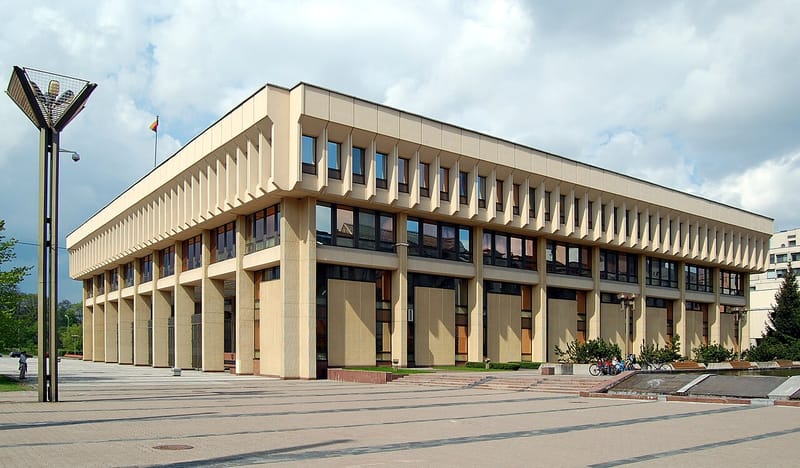ICC Charges: Belarus Opposition Targets Lukashenko’s Crimes
Pavel Latushka, deputy head of Belarus’s United Transitional Cabinet, addresses the International Criminal Court in The Hague, presenting evidence of the Lukashenko regime’s forced displacement of 300,000 citizens and systematic persecution.

From his own perspective, the situation in Belarus reached a critical point as Pavel Latushka, deputy head of the United Transitional Cabinet of Belarus and head of the National Anti-Crisis Management (NAM), reveals details about the systematic persecution that has forced approximately 300,000 Belarusians – roughly one in thirty citizens – to flee their homeland. Speaking at a discussion in The Hague during the 23rd session of the International Criminal Court (ICC) Assembly, Latushka presented evidence of what he describes as crimes against humanity perpetrated by the Lukashenko regime.
Systematic State-Sponsored Persecution
The Belarusian authorities have engineered what Pavel Latushka terms "a horrifyingly effective machine for mass persecution and repression," targeting individuals deemed disloyal to the regime. This policy is supported by legislation explicitly designed to facilitate the persecution of dissenters, which President Alexander Lukashenko has described as efforts to "cleanse Belarusian society."
Since mid-2020, Belarus has witnessed widespread human rights violations, including torture, inhumane and degrading treatment, sexual violence, enforced disappearances, arbitrary detention, and extrajudicial killings. These crimes occur in an environment where perpetrators operate with near-total impunity, creating a pervasive climate of fear and terror that has forced approximately 300,000 Belarusians to flee their homeland.
Cross-Border Persecution and International Response
The regime's reach extends beyond Belarus's borders, with authorities continuing to target citizens who have fled. According to Latushka, exiled Belarusians face threats of violence, intimidation, criminal prosecution of family members and associates who remain in Belarus, politically motivated trials conducted in absentia, and property confiscation. These actions, he asserts, constitute crimes against humanity due to their systemic and targeted nature.
On September 30, Lithuania became the first country to invoke its rights under Article 14 of the Rome Statute, referring these transboundary crimes to the ICC prosecutor. This referral highlights the regime's actions as international crimes that demand accountability. Latushka has called on other ICC member states, particularly Poland and Latvia, to follow Lithuania's lead, emphasizing that collective action strengthens the prospects for justice.
Legal Proceedings and International Support
Although Lithuania's referral to the ICC prosecutor marks a significant step, Prosecutor Karim Khan has clarified that such a referral does not automatically trigger an investigation. The ICC's procedural framework requires careful review and approval by a pre-trial chamber, which includes three judges assigned to this case: Julia Motoc (Romania), Reine Alapini-Gansou (Benin), and Xacara Flores Liera (Mexico). This process underscores the importance of additional support from other ICC member states to enhance the legitimacy and momentum of the case.
At a side event organized by Redress and the M.A.R.A. Global Justice and Human Rights Center during the ICC's 23rd Assembly session, representatives from Lithuania’s Ministry of Justice and the International Committee for the Investigation of Torture in Belarus joined Latushka to discuss the need for sustained international efforts. Drawing parallels to similar cases in Myanmar and Bangladesh, they highlighted the role of collective state actions in bolstering accountability for crimes against humanity.
Regional Security Implications
The mass displacement of Belarusians—approximately one in thirty citizens—has significant implications for regional stability. Neighboring states like Poland and Latvia, which have offered safe haven to many refugees, face increasing pressure to support ICC actions against the Lukashenko regime.
These developments are part of a broader regional security concern, particularly given Belarus's strategic location as a buffer between NATO's eastern flank and Russia. Lithuania’s recent decision to terminate its customs cooperation agreement with Belarus further underscores the growing deterioration in Belarus's relations with its western neighbor.

International Criminal Court Jurisdiction
While Belarus is not a party to the Rome Statute, the ICC's jurisdiction over these alleged crimes stems from their cross-border nature, particularly as they continue to affect exiles living in ICC member states like Lithuania, Poland, and Latvia. This extraterritorial dimension strengthens the case for ICC involvement, but meaningful progress will depend on the cooperation of member states in providing evidence and enforcing potential arrest warrants. Latushka and other advocates have stressed that collective referrals by multiple ICC state parties would significantly bolster the prosecution's ability to hold high-ranking Belarusian officials accountable for their actions.
See more related stories on Belarus directly on grosswald.org:







